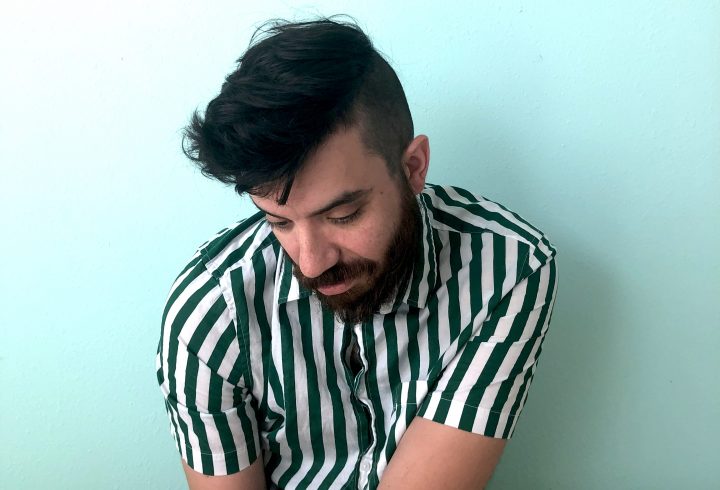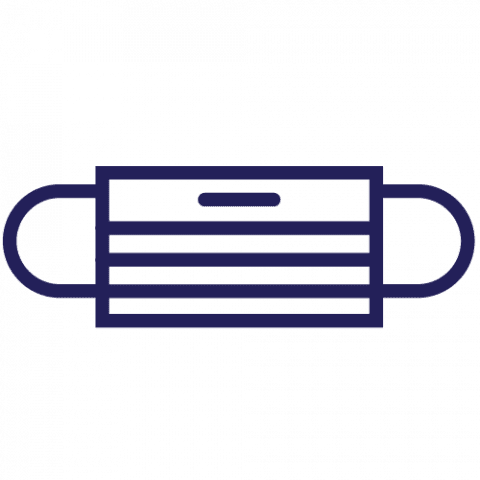Although this event has passed, you can still purchase tickets now through Friday, October 22, at 7:30 p.m. (PT). The event will be viewable until 11:59 p.m. on Friday, October 22.
How does one recover from addiction without destroying the self-as-addict? Pilgrim Bell, Kaveh Akbar’s newest collection of poems, meditates on this question, taking readers on a spiritual journey through disavowal, divinity, and belonging.
With formal virtuosity and ruthless precision, Akbar’s brilliant poems unfold in the empty space where song lives, teasing the sacred out of silence and stillness.
Q&A with Lena Khalaf Tuffaha.
With formal virtuosity and ruthless precision, Kaveh Akbar’s second collection of poems, Pilgrim Bell, takes its readers on a spiritual journey of disavowal that asks, How does one recover from addiction without destroying the self-as-addict? If living justly in a nation that would see addiction erased is itself a kind of self-destruction, what does one do with the body’s question, “what now shall I repair?” Here, Akbar responds with prayer as an act of devotion to dissonance—the infinite void of a loved one’s absence, the indulgence of austerity, making a life as a Muslim in an Islamophobic nation—teasing the sacred out of silence and stillness.
Richly crafted and generous, the linguistic rigor of Pilgrim Bell is tuned to the register of this moment. As the swinging soul crashes into its limits, against the atrocities of the American empire and through a profoundly human capacity for cruelty and grace, these brilliant poems dare to exist in the empty space where song lives—resonant, revelatory, and holy.
Akbar is also the founder of Divedapper, a home for dialogues with the most vital voices in American poetry. With Sarah Kay and Claire Schwartz, he writes a weekly column for Paris Review called “Poetry RX.” Previously, he ran The Quirk, a for-charity print literary journal. He served as Poetry Editor for BOOTH and Book Reviews Editor for Southeast Review. Along with Gabrielle Calvocoressi, francine j. harris, and Jonathan Farmer, he starred on All Up in Your Ears, a monthly poetry podcast. His poems appear in The New Yorker, Poetry, PBS NewsHour, The New Republic, Best American Poetry, the New York Times, and elsewhere.
Akbar is the author of Calling a Wolf a Wolf (Alice James Books, 2017; Penguin UK, 2018). He is also the author of a chapbook, Portrait of the Alcoholic (Sibling Rivalry, 2017) and the recipient of the Levis Reading Prize, Pushcart Prize, Ruth Lilly and Dorothy Sargent Rosenberg Poetry Fellowship, and the Lucille Medwick Memorial Award from the Poetry Society of America. Born in Tehran, Iran, he teaches at Purdue University and in the low-residency MFA programs at Randolph College and Warren Wilson.
Lena Khalaf Tuffaha, our moderator for the evening, is a poet, essayist, and translator. Her first book, Water & Salt (Red Hen Press), won the 2018 Washington State Book Award for Poetry. Her first chapbook, Arab in Newsland, won the 2016 Two Sylvias Press Prize. Her chapbook, Letters from the Interior (Diode 2019), is a finalist for the 2020 Jean Pedrick Chapbook Prize. She served as Inaugural Poet-in-Residence at Seattle’s Open Books: A Poem Emporium from 2017-2018. You can learn more about her work at www.lenakhalaftuffaha.com.
Alex Guy, our Bushwick Book Club musician for the evening, is a Seattle-based violinist, violist, singer and composer, and is the leader and principal songwriter of Led To Sea, a magnetic trio that fuses classical, pop and experimental music. Alex has also composed extensively for dance, film and theater, and has performed and collaborated with many notable bandleaders, composers, improvisers and musicians in the Pacific NW and beyond, including Angel Olsen, Thao and the Get Down Stay Down, Wayne Horvitz, Mirah, Sera Cahoone, Jherek Bischoff, Ahamefule Oluo and Laura Veirs. Learn more at https://ledtosea.bandcamp.com/.

